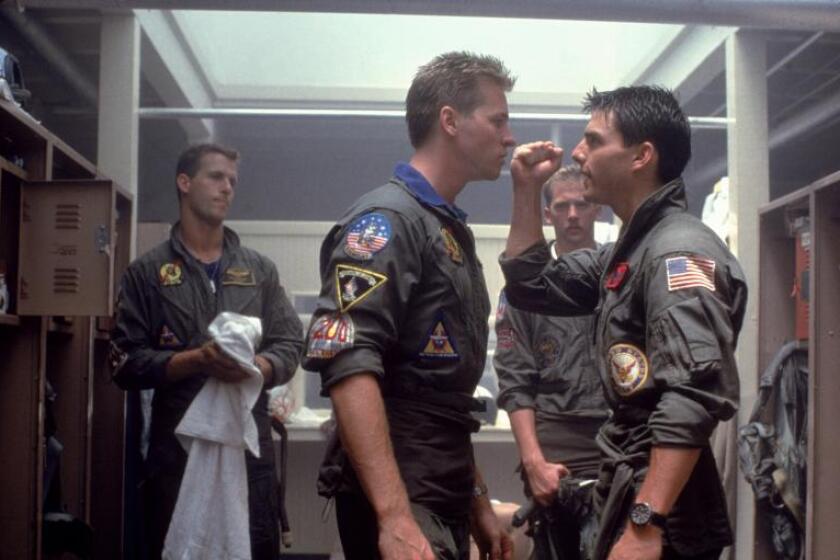24 Frames: Joaquin Phoenix apologizes on David Letterman’s show
- Share via
After confessing to America that his breakdown was a put-on, Joaquin Phoenix went on late-night television to explain why he did it.
Phoenix and “I’m Still Here” director Casey Affleck made separate late-night appearances this week to come clean about the elaborate prank that had the Oscar nominee leaving behind acting for hip-hop. That move resulted in Phoenix making a bizarre, zoned-out appearance on “Late Show With David Letterman” in February 2009 as well as in the recently released faux- documentary “I’m Still Here,” which chronicles the alleged breakdown.
“We wanted to do a film that explored celebrity and explored the relationships between the media and the consumers and the celebrities themselves,” a well-scrubbed and deferential Phoenix told Letterman on Wednesday night, his first visit to the show since the infamous YouTube-worthy appearance more than a year and a half ago.
Appearing on “The Tonight Show With Jay Leno” on Tuesday, Affleck said that the intent of “I’m Still Here” was to portray the arc of a fictional character. “It’s a movie about an actor who’s been doing this for his whole life, and he decides he wants to try something else.”
Even though Affleck and Phoenix let dangle the possibility that this was the actor’s real life, Affleck told Leno he was flummoxed by the public response that this might be real. “It doesn’t seem like it would cause that much confusion, but it did.” He added, “I wanted [the audience] to think it was real while they were watching it. But I assumed when it was over they would understand it wasn’t real.”
The movie had resulted in some eyebrow-raising among Hollywood insiders and the general public, first about Phoenix’s well-being and then, once Affleck admitted last week that it was all an act, about the wisdom of the stunt. The movie, meanwhile, has not galvanized the viewing public — it has grossed $259,000 in the first 10 days of its relatively limited release — although distributor Magnolia Pictures hopes that audiences will discover it on video-on-demand and other platforms.
On Wednesday, Phoenix also apologized to Letterman for behavior that had him playing a character on the host’s program in hopes he could get a “beatdown” and then include the segment in his film. “You’ve interviewed many people, and I assumed that you would know the difference between a character and a real person. But I apologize,” Phoenix told him. “I hope I didn’t offend you in any way.” Letterman, who maintained he did not know the appearance last year was a joke, replied that he didn’t take umbrage.
“I’m telling you, it was so much fun. It was batting practice,” the host said.
The appearance was heavily promoted by CBS as the kind of event television that Letterman guest appearances are occasionally known for. The exchange lacked the charge that has come with some other Letterman squabbles, such as his years-long cold war, and then on-show reconciliation, with Oprah Winfrey. But viewers were clearly interested in the Phoenix appearance — ratings for the episode were up 14% over the program’s season average last year.
The actor’s most scrutinized next move likely won’t come on a television set but behind closed doors, in filmmaker meetings, as the actor decides what film part to take on next. (His agents at William Morris Endeavor have been meeting with producers and studio executives.) The blogosphere was already buzzing this week after a report that Clint Eastwood was considering Phoenix for a part as J. Edgar Hoover’s lover in Eastwood’s new biopic about the former head of the FBI.
steve.zeitchik@latimes.com
More to Read
Only good movies
Get the Indie Focus newsletter, Mark Olsen's weekly guide to the world of cinema.
You may occasionally receive promotional content from the Los Angeles Times.










